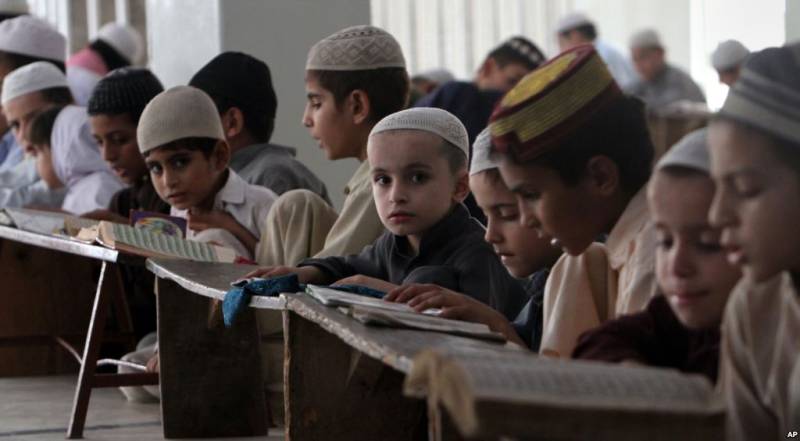In what has been termed as a highly successful meeting between the Prime minister, Chief of army staff (COAS), top officials and madrassah representatives, it was decided that religious seminaries will now be granted permission to open bank accounts. The move comes as an effort to guard against illicit funding and ensure transparency of all transactions, local and international. Interior Minister Chaudhry Nisar Ali Khan being at the heart of the madrassah regulation policy and implementation of the National Action Plan (NAP), has brought together the religious scholars from the Tanzeem Ittehad-ul-Madaris (TIM) - an umbrella body of five organizations representing the seminaries of the major schools of thought – to form a consensus on the regulation of funds, registration process and curriculum.
This consensus was a much-needed one to ensure that religious seminaries are more transparent regarding their monetary expenditures. All terrorist activities require monetary fuel and to choke that supply is the most effective way to bring down these vastly integrated networks. The TIM currently represents 18,000 seminaries, which hosts nearly 3 million students. To have a streamlined system of regulating curriculum and funding means protecting these 3 million students from falling prey to terrorism. Just the fact that after decades the religious leaders and the government have come to the negotiation table and are in agreement to block terrorist ideology is a cause of celebration.
There was enough heated debate on the issue of banning foreign funding for religious seminaries, with religious political parties such as JUI-F taking the lead in the opposition to this proposal. A joint report by provincial police chiefs, presented to the Senate in January also put forth proof that 23 religious schools across Pakistan were getting funds from the Middle East, Iran and the Gulf states of Qatar, United Arab Emirates and Kuwait. In light of the fierce opposition it is heartening to witness that a middle ground could be sought and the TIM representatives had expressed their readiness to register themselves and have their accounts audited.
It is important to realize that plans and policies like the NAP are all well in good, but they prove to render useless until there is support from the community to accept the law. Only the committed support of the religious leaders and Ulema will ultimately ensure the success or failure of the NAP. If the madrassah system is effectively regulated and its curriculum is streamlined according to the rest of the country, only then will we be able to bridge the great divide in ideology that constantly grips the country in a game of tug of war.






